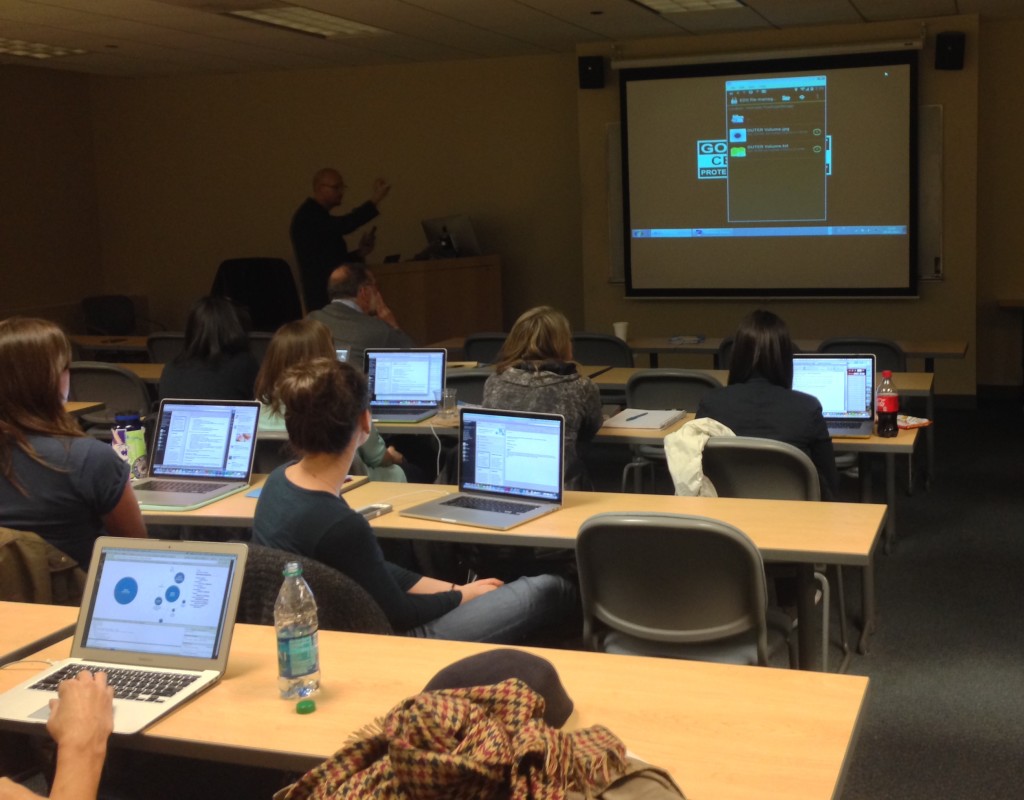CHICAGO — In the digital age, journalists traveling overseas have more to worry about than just physical attacks. Electronic security has become increasingly important as newsgathering technology grows and the surveillance capability for those devices grows with it.
Since 1985, Reports Without Borders, an international non-profit, non-governmental organization that promotes and defends freedom of information and freedom of the press, has worked to keep journalists both physically and electronically secure.
Delphine Halgand, the Washington director for Reporters Without Borders, said staying safe in the cyber realm is more important than ever.
“Your computer and information exchanged on the Internet can be very easily monitored and for journalists that can mean your sources, your data and your investigation can be monitored.”
The organization held a workshop for two dozen Medill graduate students and faculty in Chicago to talk about the risks of relying on technology for protection and what journalists can do to help make sure their data and sources stay safe.

Stephane Koch teaches Medill MSJ students about some of the potential risks of using technology when reporting in both the U.S. and abroad.
Halgand says it’s important to exercise caution when using technology because it not only houses our information, but it can also lead back to the contacts who provide it.
“Confidentially in sources is key for investigative journalists and that’s why journalists need to be aware,” she said.
Halgand said protecting sources in the U.S. helps ensure the press is able to work and investigate sensitive issues, but in some parts of the world, it’s important for an even more compelling reason.
“Abroad it’s key because it can be a question of death if a journalist is meeting a sensitive contact to interview them and then their computer is compromised,” Halgand said.
The Reporters organization aims to help journalists do their job safely on several levels.
“We provide physical safety tools like helmets and bulletproof vests, GPS beacons and other ready-for-war-zone items, but we also can provide a virtual private network and encryption software,” Halgand said.
Halgand suggested that if journalists are going to places like Iran, Vietnam or any other security-sensitive countries, they contact RWB and check out their Online Survival Kit before hopping on a plane.
“Most of the time journalists call us and say ‘I’m in Bahrain and I know the police are following me. I’m leaving in two days and I know they are going to ask me for my computer at the border but I don’t want to destroy all my interviews. What can I do?’” Halgand said.
Halgand said if journalists take time to prepare themselves, it could help prevent both those last minute issues and other ones.





